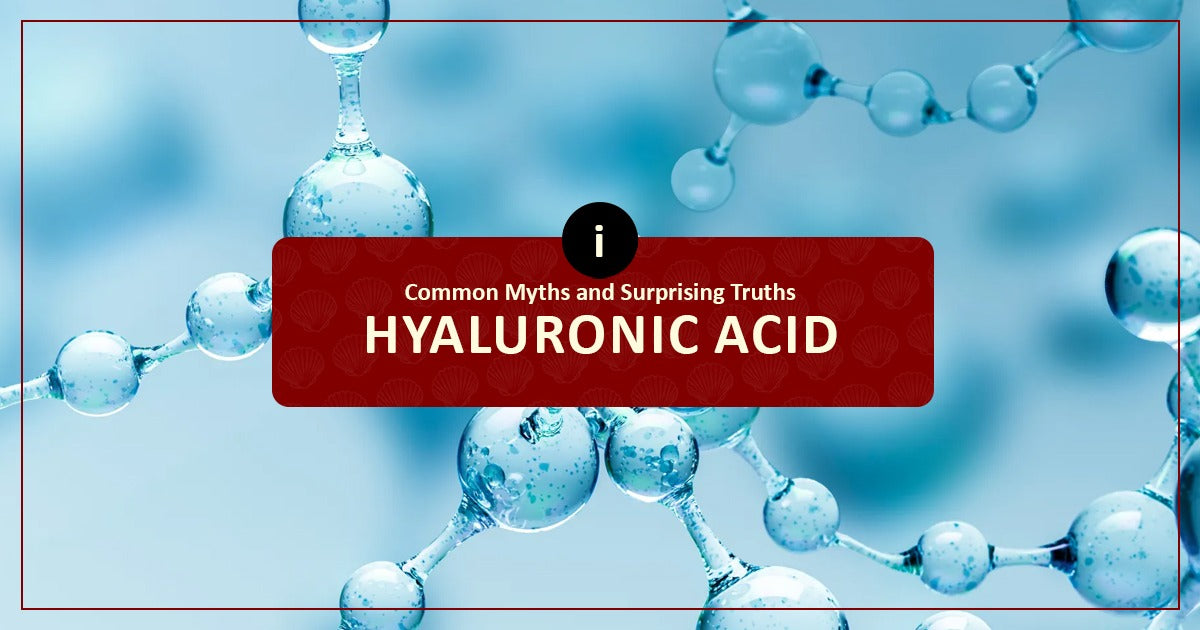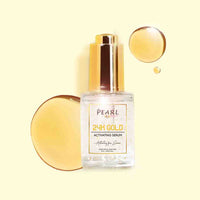The Hyaluronic Acid serum is a popular skincare product known for its remarkable ability to hydrate and rejuvenate the skin. The hyaluronic acid benefits for the skin include improved hydration, reduced fine lines, and enhanced skin elasticity. Specifically, the hyaluronic acid benefits for the face include a plumper, more youthful appearance and smoother texture.
Additionally, hyaluronic acid benefits for acne include soothing inflammation and promoting healing without clogging pores. While the hyaluronic acid benefits and side effects are generally positive, it's essential to be aware of potential reactions in sensitive skin. Beyond skincare, hyaluronic acid benefits for joints include improved lubrication and reduced pain, showcasing its versatile health benefits.
What is Hyaluronic Acid?
Hyaluronic acid (HA) is a substance that naturally exists in the body's connective tissue. This natural presence reassures us of its safety and compatibility with our skin. It is an effective moisture-binding ingredient, particularly important in the skin because of its ability to hold a lot of water. Furthermore, HA can hold up to 1000 times its weight in water, which is very beneficial for maintaining water-content skin. HA production decreases as we age, which can lead to a decrease in water content, firmness and elasticity in the skin. This reduction in HA can lead to fine lines and wrinkles and can lead to a non-youthful complexion.
In skincare, hyaluronic acid (HA) is a key ingredient in various products like serums, creams, and injectables. When applied to the skin, HA acts as a moisture magnet, drawing water from both the air and the deeper layers of the skin to the surface, providing an instant plumping effect. Injectable HA, often used in fillers, can add volume and smooth out deeper wrinkles and lines. HA is also used in medical applications, especially in ophthalmic surgeries, where it aids in tissue healing and hydration. It is also used in joint injections to help lubricate the joint.
Exposing the Myths of Hyaluronic Acid
Despite its popularity, there are many myths about HA. One of the most common myths is that when HA is used on a daily basis, the skin can become habituated to it and become dry when the usage is stopped. In reality, HA supplements help the skin stay hydrated by working with its natural processes. If stopped, the skin will return to how it was before using HA without getting any worse. Another popular myth is that HA molecules are all the same size and can act only on the skin’s surface. But in reality, HA molecules come in different sizes, which helps them penetrate deeper layers of the skin. This takes the hydration to deeper layers of the skin, providing immediate hydration and a youthful complexion.
Modern products usually mix different sizes of molecules to get the best results. Many thinks hyaluronic acid (HA) is only good for dry skin. While HA is great for adding moisture, it's good for all skin types, even oily and acne-prone skin. HA is light and won't clog the pores, so it keeps the skin hydrated without making it greasy. Another common belief is that HA in skincare products is completely synthetic and could be harmful. However, HA in these products usually comes from natural sources or is made through a safe bio-fermentation process, so it's safe and works well with the skin.
Lastly, many users think HA offers a permanent solution to skin hydration. In reality, using HA doesn’t provide permanent effects, but HA can maintain skin hydration when used daily. Injectable hyaluronic acid (HA) offers longer-lasting effects but requires regular touch-ups.
Surprising Benefits of Hyaluronic Acid
Most people think that HA is a simple hydrating agent, but its benefits go beyond this. HA offers excellent help in wound healing. It maintains inflammation levels and signals the mind to send more blood cells to the damaged body area. Many studies have shown that applying HA to the wound can help speed up healing. Hyaluronic acid (HA) also acts as an antioxidant, which helps shield the skin from damage caused by UV rays and pollution. HA can help stop early ageing and keep the skin healthy by getting rid of these harmful substances.

For people with sensitive skin, it can offer excellent soothing benefits. It can aid in calming redness and irritation caused by pollutants and dust. It's great for people with skin issues like rosacea or eczema. It's gentle and won't worsen these conditions while giving the skin the moisture it needs. HA also helps in increasing the efficiency of the other ingredients. When the skin is properly moisturized, HA helps other active ingredients like retinoids, vitamin C, and peptides to absorb better and work more effectively.
Is Hyaluronic Acid Safe for All Skin Types?
Hyaluronic acid is safe for all skin types, including sensitive, oily, and acne-prone skin, due to its presence in the human body. It doesn't clog pores, making it ideal for oily or acne-prone skin. HA is gentle and doesn't irritate sensitive skin or worsen conditions like rosacea and eczema. It hydrates by attracting and retaining water without adding oiliness or causing breakouts. Dermatologists recommend HA for patients using skin-drying treatments since it restores hydration without interfering with other ingredients. HA works effectively across all skin types and ages, providing universal hydration and plumping benefits.

Conclusion
Try our Hyaluronic Acid-infused ARM Pearl Beauty's Day Cream Sunscreen with SPF50, which shields the skin from harmful UV rays. It's a light, hydrating product that refreshes the skin and offers broad protection. Natural extracts help guard against UV damage and ageing signs, leaving the skin feeling smooth, protected, and soft throughout the day. Make sure to spread the sunscreen evenly across the face and neck, covering them completely. Let the sunscreen soak into the skin for at least 15 minutes before going out in the sun. Use ARM Pearl Beetroot Face Wash for a calming effect when washing the face. We have launched Hyaluronic Acid Moisturizer that locks the moisture for long time.
Frequently Asked Questions About Hyaluronic Acid
What does hyaluronic acid do to your face?
Research shows that hyaluronic acid is good for soft tissues, encourages your body to produce more collagen and elastin, keeps your skin hydrated, prevents it from feeling tight, improves flexibility, and helps reduce scars.
Does hyaluronic acid brighten skin?
While hyaluronic acid doesn't directly lighten skin dark spots, its smaller molecules can go deep into the skin and moisturize the parts that make collagen.
What are the benefits of hydrochloric acid?
Hyaluronic acid benefits skin hydration, retaining moisture to reduce wrinkles and fine lines. It also supports joint health by lubricating joints and aids in wound healing by promoting tissue repair and inflammation reduction.










